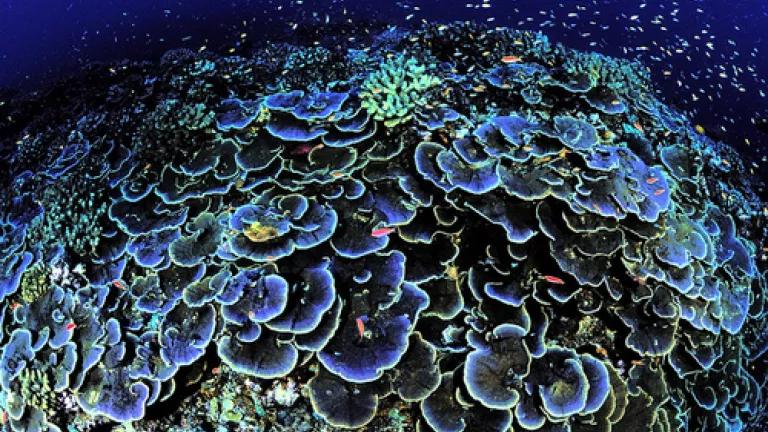
I started working to protect the oceans soon after I joined NRDC four decades ago. Over the years, I have witnessed devastating setbacks like the Exxon Valdez and BP oil spills. I have also welcomed promising developments, such as the rebound of depleted fish and the amazing network of marine protected areas in California. Now I see an opportunity to create a major breakthrough in ocean health.
During September, the United Nations will begin discussing how to govern the high seas. This doesn’t happen often and it won’t happen again for awhile. This is our chance to map out a sustainable future for two-thirds of the world’s oceans.
The high seas are waters that lie beyond the authority of any one country and cover nearly half of the Earth. They are the global commons, and as a result, they are the responsibility of everyone and no one.
The neglect shows. Armadas of industrial fishing fleets have plundered marine life, contributing to the loss of 90 percent of the world’s large fish such as tuna and swordfish. Gyres of plastic debris stretch for thousands of miles, threatening fish, birds, and other marine mammals. And sweeping challenges like ocean acidification and coral die-offs continue to intensify.
Efforts to revive the high seas are hampered by antiquated governance. There is no system for creating fully protected areas in these international waters. And there are no uniform guidelines for assessing the cumulative environmental impact of fishing, mining, and energy development—something the US has required in our own waters since the 1970s.
It’s time for the Wild West approach to end.
A new international agreement is needed to usher in a new era of sustainable oceans management. It would help secure equitable use of the world’s marine resources and safeguard ocean health for generations to come.
All of us will benefit from these measures, for although the high seas seem distant, healthy oceans touch all our lives. They produce half the oxygen in our air, provide a home for 97 percent of life on our planet, harbor life-saving medicines, and shape the weather and stabilize the climate.
They also feed and support us. The ocean economy generates about 5 percent of the world’s GDP, and an estimated 350 million jobs are liked in the seas around the world.
We need the oceans, and they need us. Click here to sign a petition urging UN Secretary-General Ban Ki-moon to join our call for high seas protection. The secretary is already committed to ocean health. Now we can help him demonstrate the enormous support for high seas protections. Let’s seize this opportunity.
Photo credit: US Fish & Wildlife Service
